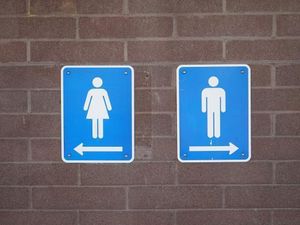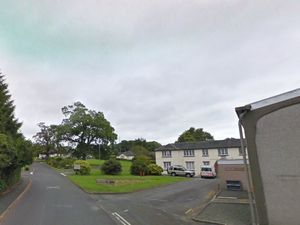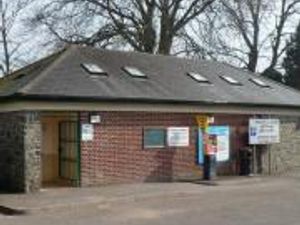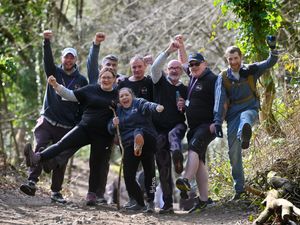Are energy drinks harming our children?
On the edge. Jittery. Irritable, bad tempered, anxious. These symptoms probably sound familiar to many parents. But if your child has been particularly tetchy lately, has developed sugar cravings, or seems to be bored all the time, it might be worth checking up on what they are drinking.
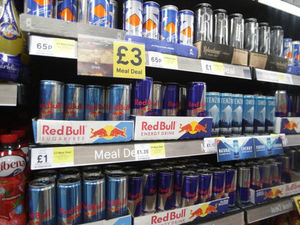
According to Shropshire nutritional expert Charlotte Griffin-Jones, they are just some of the visible symptoms of children who have been consuming energy drinks.
High-caffeine drinks have been in the news since St Martin's, near Oswestry, became the first village in the country to impose a blanket ban on the sale of them to under 16s. All the retailers in the village agreed not to sell them to children, earning the praise of television chef Jamie Oliver. The star called on Health Secretary Jeremy Hunt to follow the lead of St Martin's by introducing laws prohibiting the sale of the drinks to youngsters.
But it is not just television chefs who are concerned by the drinks. Recent research found that British children consume more energy drinks than any other youngsters in Europe, with the figure rising by 185 per cent since 2006. MPs are so concerned that a parliamentary committee is to hold an inquiry to see if, indeed, there is need for a change in the law.
Chairman of the science and technology committee, Norman Lamb, says: "We need to understand how the caffeine and sugar in energy drinks might cause negative health outcomes.
"Meanwhile, some retailers have chosen to ban their sale, and some have not.
'"Should it be for retailers to decide which products can be sold on health grounds? Our inquiry will consider the evidence and set out what needs to be done by the Government, the industry and others."
So what is so bad about energy drinks?
Mrs Griffin-Jones, a registered nutritional therapist who runs the Something On A Plate consultancy in Shrewsbury, says the visible signs of crochety, anxious behaviour are just the tip of the iceberg.
"What we don’t see is what’s happening internally – livers working overtime to process and remove caffeine, insulin pumping around the body mopping up sugar, fat cells growing as they greedily take in that extra sugar.
" At the same time the heart, blood vessels and kidneys are taking the heat from raised blood pressure. In the long term all these things add up to an increased risk of diabetes, obesity and cardiovascular disease."
Mrs Griffin-Jones, herself the mother of young twins, says the drinks are made up of a killer combination of sugar and caffeine and a number of other ingredients not recognised as particularly nourishing for the body.
But that is not taking into accounts on the brain.
"Like all addictive substances the brain recognises it, accepts it and enjoys it for a brief moment," says Mrs Griffin-Jones.
"We feel alert and energetic but then just as we’re enjoying this high, the brain kicks it out again when the feeling gets too weak and goes on the hunt for something else to provide that high again.
"And so the vicious cycle of addictive cravings begin."
She says that for the an adult the effects are bad enough, but for the developing mind and body of a child they are considerably worse.
"It takes five-to-six hours for 50 per cent of the caffeine content in an adults bloodstream to reduce, in children and teenagers caffeine sticks around for much longer and at higher levels resulting in the type of behavioural problems and anxiety school teachers are witnessing."
Supermarket giants Tesco, Asda, Morrison's, Sainsbury's, the Co-op, Waitrose, Aldi and Lidl have also introduced a voluntary agreement not to sell the drink to under 16s.
Mrs Griffin-Jones is a firm supporter of the ban.
"Policy makers, food manufacturers, supermarkets, small shop owners and ultimately parents all have a responsibility to ensure our children are not exposed to such toxic ingredients at an age when they are physically and mentally developing," she says.
"Reliance shouldn’t be placed on our children to make this decision which is why the voluntary ban on sales to children by a number of shops in north Shropshire is such a positive step."
She is concerned in most shops energy drinks sit side by side with other fizzy drinks, with little distinction between branding.
"It’s no wonder children don’t see or understand that an energy drink can contain twice the amount of caffeine than a fizzy drink and the associated risks of over consumption."
The British Soft Drinks Association insists the drinks are not marketed to children.
Director general, Gavin Partington, says: "Energy drinks and their ingredients have been deemed safe by regulatory authorities around the world.
"In 2010 we introduced a voluntary code of practice to support parents and consumers who want to make informed choices.
"In 2015 this was updated to include more stringent guidelines around marketing and promoting, including reference to in and around schools.
"Energy drinks are not marketed or promoted to under 16s and all beverages carry an advisory note stating: Not recommended to children.
'Energy drink manufacturers have taken all possible steps to be clear about the suitability of energy drinks."
Mrs Griffin-Jones is also concerned that the drinks mean fewer families are eating together for breakfast.
"Children have got all the time in the world to turn into highly stressed, caffeine-fuelled adults," she says.
"Let’s prevent it from starting too early whilst we can.
"Encouraging a good night’s sleep by turning off laptops and phones an hour before bed, eating a quick but nourishing breakfast before leaving the house and having enough healthy snacks on hand will help keep children on an even keel throughout the day.
"And if they want a hit of caffeine introduce them to a good cup of tea in the morning."

